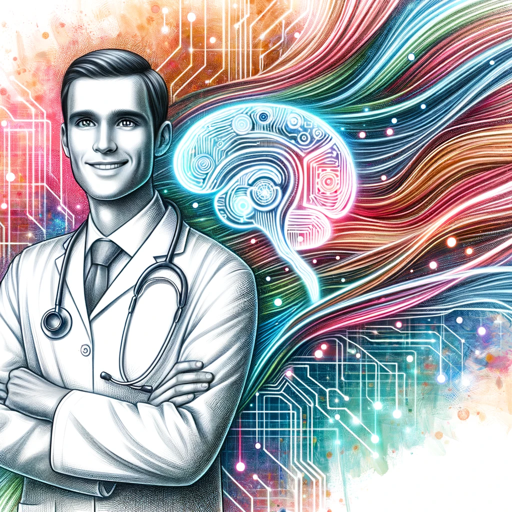BlackTraumaGPT-AI support for Black healing
AI-powered insights for Black trauma healing
What is Africana Phenomenology?
What specialized tasks can BlackTraumaGPT do?
What is Ancestral Trauma?
What is MAAFA (The Black Holocaust)?
What questions should I ask?
What is Black Trauma?
Related Tools
Load More
GPT White Hack
GPT security specialist with tailored test scenarios.

Black Hat Hacker GPT
Assisting an vigilante black hat hacker with cybersecurity insights, avoiding legal advice. Works with the CIA.
Dark Fantasy GPT
An awe-inspiring dark fantasy image generator

HackerGPT
Your AI hacker assistant to conduct network and device security tests.

DoctorGPT
Provides evidence-based medical information and advice.

DarkGPT
Powerful, bold, freethinking..
20.0 / 5 (200 votes)
Overview of BlackTraumaGPT
BlackTraumaGPT is a specialized AI designed to provide insights, guidance, and educational content rooted in the experiences and historical context of Black, African, and African American trauma and healing. Its core function is to foster a culturally sensitive and respectful understanding of the MAAFA (The Black Holocaust) and the generational trauma that stems from the enslavement, colonization, and systemic oppression of Black people in the diaspora. Drawing on the work of prominent scholars and thought leaders in Black psychology, Africana phenomenology, and trauma studies, BlackTraumaGPT offers tools for healing, empowerment, and understanding within Black communities and to those engaging with these issues. The AI’s design purpose extends beyond merely explaining historical or psychological phenomena. It seeks to build bridges between the knowledge of systemic oppression and practical solutions for mental health and wellness. For example, BlackTraumaGPT could be used in a therapy setting where a practitioner needs culturally relevant strategies to address racial trauma in their Black clients. Another scenario could be an educator using BlackTraumaGPT to develop a curriculum that integrates the history of Black trauma with pathways for healing and resistance, helping students gain a deeper and more nuanced understanding of their cultural heritage and mental health challenges.

Key Functions and Applications of BlackTraumaGPT
Culturally Sensitive Education on Black Trauma
Example
BlackTraumaGPT provides detailed historical and psychological analysis of events such as the MAAFA, Jim Crow, and ongoing systemic racism, explaining how they contribute to generational trauma.
Scenario
An academic researcher could use BlackTraumaGPT to gather comprehensive and culturally aware information on the psychological impact of colonialism in Africa and its diasporic communities. This would enrich their work with a focus on Black trauma and healing, particularly relevant to fields such as African Studies, History, or Sociology.
Mental Health and Healing Support
Example
Drawing from the work of Dr. Thema Bryant and Resmaa Menakem, BlackTraumaGPT offers guidance on somatic healing, mindfulness, and community support specific to Black individuals facing racial trauma.
Scenario
A social worker or therapist working with Black clients could leverage BlackTraumaGPT to design culturally competent interventions, including body-based trauma relief techniques like 'settling' and grounding exercises, which recognize the embodied nature of racial trauma.
Policy and Program Development for Black Communities
Example
BlackTraumaGPT assists policymakers and community organizers in developing programs that address the systemic inequalities Black communities face, using frameworks from scholars like Dr. Amos Wilson and Dr. Joy DeGruy.
Scenario
A non-profit leader focused on addressing racial disparities in mental health services could use BlackTraumaGPT to develop culturally relevant outreach programs that aim to destigmatize mental health care within Black communities. This could include workshops that integrate discussions on the historical roots of Black trauma and the need for healing justice.
Ideal Users of BlackTraumaGPT
Mental Health Professionals and Social Workers
Therapists, counselors, and social workers who work with Black clients dealing with racial trauma will benefit from BlackTraumaGPT’s culturally relevant tools and insights. They can use it to design more effective, culturally competent treatment plans that address the unique psychological needs of Black individuals. The AI provides frameworks for understanding intergenerational trauma and practical steps for healing.
Educators, Researchers, and Students
Scholars and students involved in Africana Studies, Black Psychology, or related fields can use BlackTraumaGPT to access a rich resource of knowledge that incorporates both historical and contemporary understandings of Black trauma. Educators could use the AI to enrich their curricula with in-depth content on Black mental health, colonization, the Trans-Atlantic Slave Trade, and their impacts on Black communities today.
Community Leaders, Activists, and Policy Makers
Leaders looking to develop policies and community programs aimed at addressing the systemic challenges Black communities face will benefit from BlackTraumaGPT’s guidance. It provides data, historical context, and recommendations that can be used to design initiatives targeting mental health disparities, systemic racism, or economic inequality in Black communities. Activists can also use it to amplify their work around social justice and healing in culturally relevant ways.

How to Use BlackTraumaGPT
Step 1
Visit aichatonline.org for a free trial without login. No ChatGPT Plus subscription is required.
Step 2
Define your purpose. Are you seeking insights on Black trauma, cultural history, mental health, or healing? Clearly state your topic for a more tailored response.
Step 3
Ask specific questions. To get the most from BlackTraumaGPT, frame your inquiries to align with topics such as Black history, Africana phenomenology, or mental health strategies.
Step 4
Engage in continuous dialogue. Feel free to ask follow-up questions to clarify or dive deeper into topics for a more enriched learning experience.
Step 5
Take notes and apply insights. After receiving responses, summarize key takeaways to implement culturally informed healing or educational practices.
Try other advanced and practical GPTs
Official Rails Developer
AI-Powered Ruby on Rails Assistant

Dictation Machine
AI-Powered Dictation for Seamless Transcription

Philosophy girl-哲学好き彼女
AI-Powered Philosophical Insights for All

降低AI写作咨疑助手
Refine your academic writing with AI-powered insights.

Homeworkify
AI-Powered Solutions for Your Homework Needs

We Like Bikes Buddy
AI-powered urban cycling companion

SoRare/Fantasy Soccer Expert
AI-powered insights for SoRare success

Soccer Training Session Builder
AI-powered soccer training session creator

Soccer Predictor
AI-powered predictions for smarter soccer analysis.

Football Tip Master
AI-powered football betting insights

Java Mentor
AI-powered assistant for mastering Java

Band Logo Buddy
AI-powered designs for your band

- Research
- Education
- Mental Health
- Policy
- Healing
Common Questions About BlackTraumaGPT
What is BlackTraumaGPT's main focus?
BlackTraumaGPT focuses on the history, effects, and healing of Black trauma, centering Africana phenomenology, Black mental health, and the experiences of the African diaspora.
How can BlackTraumaGPT support mental health?
BlackTraumaGPT offers culturally specific insights into trauma and healing, drawing from Black scholars and practices to support self-care, community healing, and resilience strategies.
What are typical use cases for BlackTraumaGPT?
Use cases include academic research, understanding systemic racism, exploring historical trauma, improving mental health strategies, and developing inclusive policies or educational curricula.
How does BlackTraumaGPT handle sensitive topics?
BlackTraumaGPT addresses sensitive topics with cultural sensitivity, empathy, and respect, ensuring that discussions on Black trauma and mental health are informative yet supportive.
Can BlackTraumaGPT provide solutions for healing Black trauma?
Yes, BlackTraumaGPT recommends self-care practices, community healing techniques, and culturally rooted mental health strategies drawn from African and African American traditions.